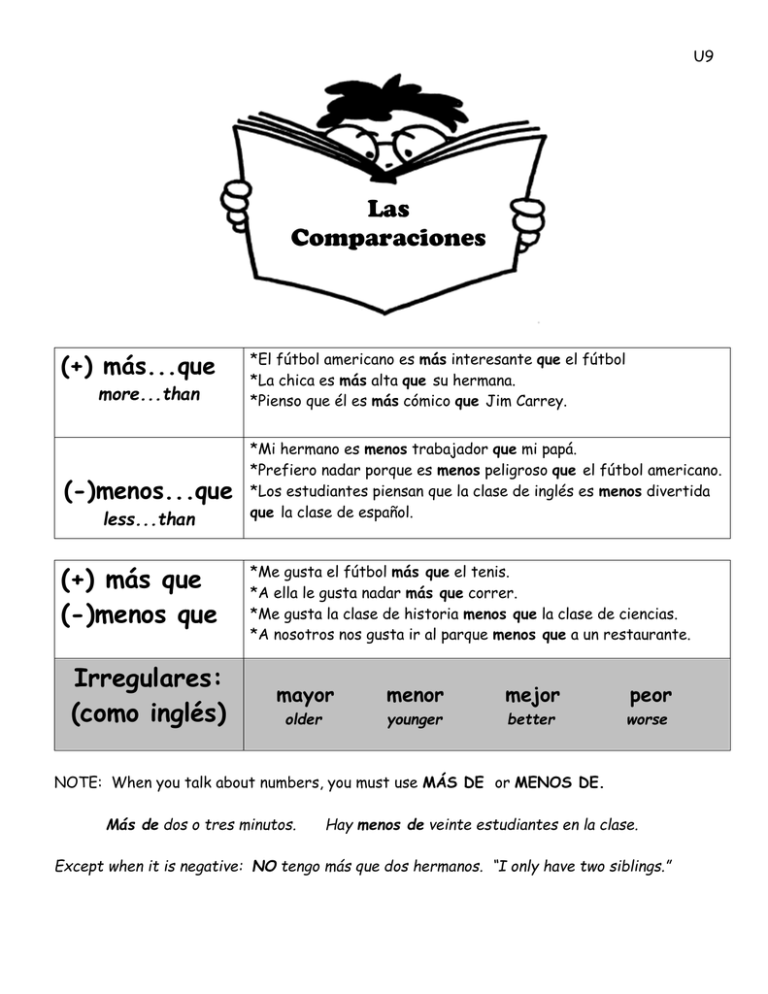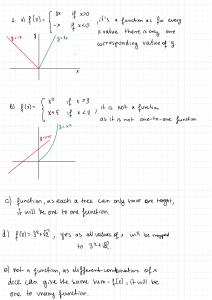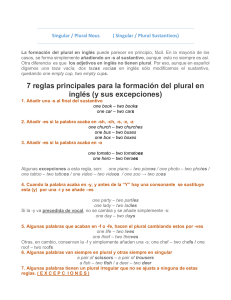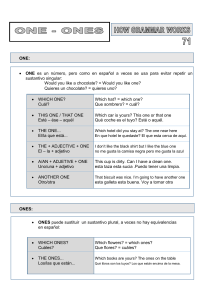(+) más que (-)menos que Irregulares:
advertisement

U9 Las Comparaciones (+) más...que more...than (-)menos...que less...than (+) más que (-)menos que Irregulares: (como inglés) *El fútbol americano es más interesante que el fútbol *La chica es más alta que su hermana. *Pienso que él es más cómico que Jim Carrey. *Mi hermano es menos trabajador que mi papá. *Prefiero nadar porque es menos peligroso que el fútbol americano. *Los estudiantes piensan que la clase de inglés es menos divertida que la clase de español. *Me gusta el fútbol más que el tenis. *A ella le gusta nadar más que correr. *Me gusta la clase de historia menos que la clase de ciencias. *A nosotros nos gusta ir al parque menos que a un restaurante. mayor menor mejor peor older younger better worse NOTE: When you talk about numbers, you must use MÁS DE or MENOS DE. Más de dos o tres minutos. Hay menos de veinte estudiantes en la clase. Except when it is negative: NO tengo más que dos hermanos. “I only have two siblings.” U9 Las Igualdades (=) tan...como as much + adj/adv + as (=) tanto como as much as (=) tanto...como as much + noun + as Note: tanto matches the noun in gender and number! *Los chicos son tan inteligentes como las chicas. *Paco juega el béisbol tan bien como Alberto Pujols. *Me gusta el béisbol tanto como el tenis. *A ellos les gusta el inglés tanto como el español. *Yo no tengo tanto dinero como Donald Trump. *Ellos tienen tantos hermanos como yo. *Ella come tanta comida como él. *No me gustan comer tantas frutas como el chocolate. Put the más to the que and it’s a plus Put the menos to the que and take it off Now tanto como’s just as much, but Lose the TO(E) to discuss that Pablo’s just as tall as Gus! U9 El superlativo A superlative is the MOST or LEAST. It is formed in Spanish by the following construction: artículo + más/menos + adjetivo + Francisco es el más alto (de la clase). La Sra. Thompson es la mayor (de la clase). Los zapatos bajos son los más cómodos. Este coche es el menos caro. Paco es el que juega mejor. Isabella es la que tiene menos. de (if a group is being indicated) Francisco is the tallest (of the class). Mrs. Thompson is the oldest (of the class). Flats are the most comfortable shoes. This car is the cheapest. Paco is the one who plays the best. Isabella is the one who has the least. OJO: El más grande y el más pequeño become el mayor y el menor when referring to age. Jorge es el mayor y Juan es el menor. Con adverbios: más/menos + adverbio Carmen es la que se viste más elegantemente. De mis amigos, Paco es el que me llama menos frecuentemente. Con sustantivos: Eduardo es el que tiene más dinero. También es el que tiene menos amigos. ísimo ísimamente Jorge is the oldest and Juan is the youngest. Carmen is the one who dresses the most elegantly. Of my friends, Paco is the one that calls me the least frequently. más/menos + sustantivo Eduardo is the one that has the most money. He’s also the one who has the least friends. The suffix –ísimo for adjectives (and –ísimamente for adverbs in -mente) is used to express a very high degree of given quality. These are called absolute superlatives. Esa casa es carísima. Esas camisas son baratísimas.


